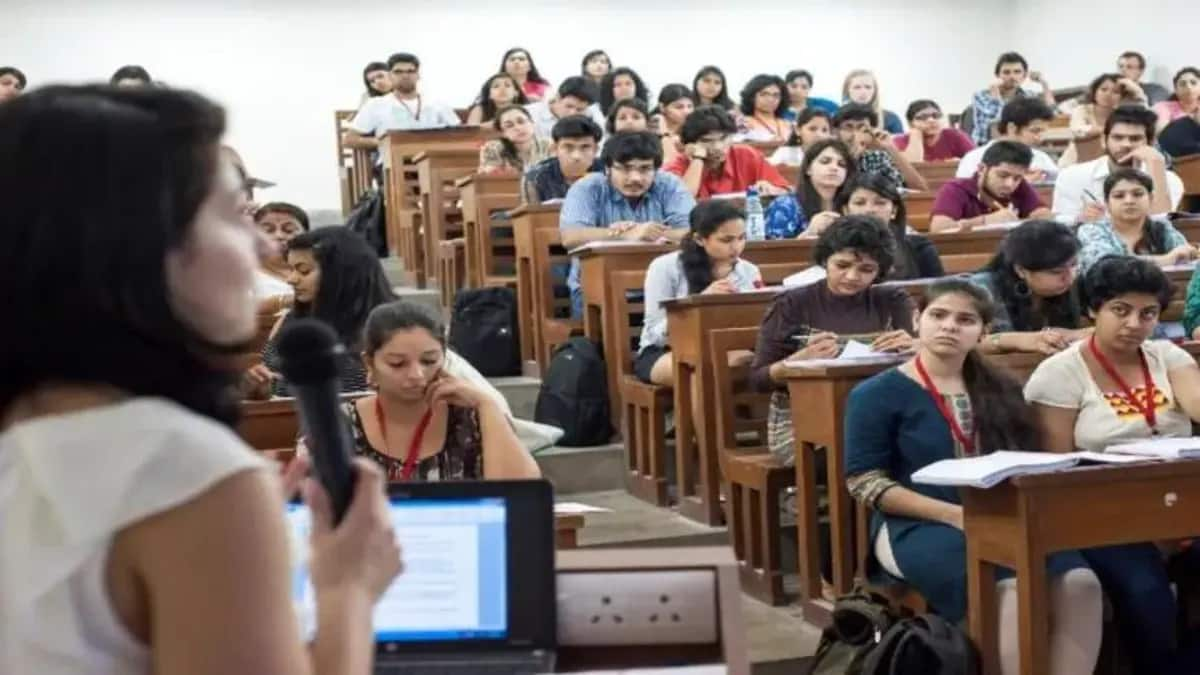CLAT Fee Issue: NLU students seek consortium response on long-pending representations
Vikas Kumar Pandit | October 28, 2025 | 04:02 PM IST | 2 mins read
The CLAT 2026 exam will be conducted on December 7 in a single shift from 2 pm to 4 pm. The application submission deadline is October 31.
CLAT Sample Paper 2026 with Answer Key- Careers360
Download the CLAT Sample Paper 2026 PDF featuring the latest exam pattern with descriptive-type questions for effective preparation.
Download EBook
Student representatives from various National Law Universities (NLUs) across India have again called on the Consortium of National Law Universities (CLAT Consortium) to respond to their repeated representations seeking changes in the Common Law Admission Test (CLAT) fee structure.
CLAT 2026: Attempt Mock Test Series | 60% Syllabus Covered (Important Topics)
CLAT 2026: Preparation Guide | Quantitative Techniques PQ's | English Language
CLAT 2026: 10 Free Mock Tests | Legal Reasoning Study Material | Criminal Law Concepts
CLAT 2026: Sample Paper | Last 5 Year QP's | Law of Torts Concepts | Study Plan | Current Affairs
The students said that despite several written submissions over the past year, the Consortium has not issued any acknowledgement or official communication so far.
According to the Cross-NLU Initiative, which represents student bodies from multiple NLUs, three separate representations were made to the Consortium, highlighting financial and procedural barriers faced by aspirants, particularly those from economically weaker sections.
Students flag high counselling and application charges
The first submission, dated November 16, 2024, pointed to the high cost of participation in the counselling process. It noted that candidates will have to pay a non-refundable confirmation fee of Rs 20,000 and a counselling fee of Rs 30,000 (Rs 20,000 for reserved category students), which collectively act as a deterrent for many applicants.
The second representation, sent on July 28, 2025, was addressed to the CLAT Consortium, the University Grants Commission (UGC), the Bar Council of India (BCI), and the Ministry of Law and Justice. It sought a review of the existing application fee structure—Rs 4,000 for general category candidates and Rs 3,500 for those in reserved categories—and proposed the introduction of need-based waivers.
The communication was accompanied by an online petition signed by more than 1,800 stakeholders, including students, faculty, and alumni from the legal education sector.
On September 2, 2025, the student representatives submitted a third request seeking a virtual meeting with the Consortium’s Executive Body. They proposed a dialogue involving student-nominated representatives from NLUs to discuss the proposed reforms and possible alternatives to the current fee system. However, no meeting or written response has been received to date.
Also readExpand AIBE eligibility criteria to include all final-year students, NLUSA urges BCI
Students seek transparent admission process
The Cross-NLU Initiative said that the representations were made in good faith and were backed by data and comparative models from other national-level entrance examinations. The students said their proposals aim to ensure that the CLAT examination and admission process remain transparent, equitable, and financially accessible to all aspirants.
The representatives reiterated their request for the Consortium to formally acknowledge the pending submissions and begin a consultative process on revising the fee structure. They also urged the Consortium to consider mechanisms that reduce the financial burden on candidates while maintaining procedural efficiency.
The CLAT 2026 registration process is ongoing, with the application deadline set for October 31. The national-level entrance exam will be conducted on December 7 in a single shift from 2 pm to 4 pm.
Follow us for the latest education news on colleges and universities, admission, courses, exams, research, education policies, study abroad and more..
To get in touch, write to us at news@careers360.com.